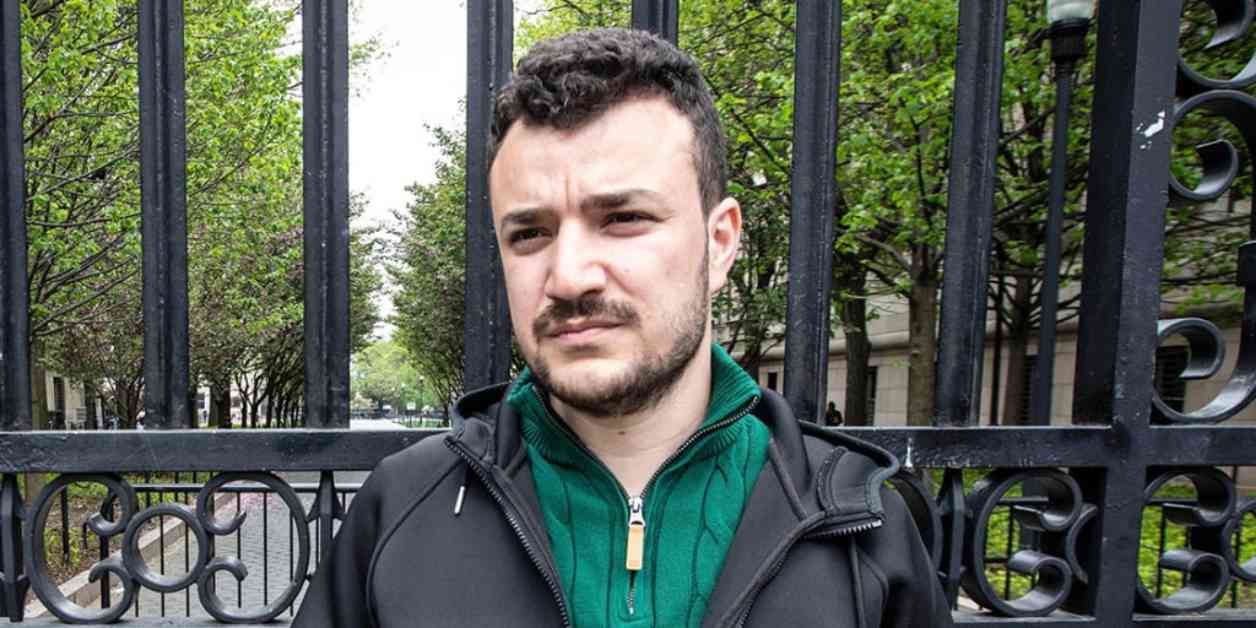The recent legal battle surrounding Mahmoud Khalil’s involvement with pro-Palestinian groups has captured the attention of many, shedding light on complex immigration issues and free speech rights in the United States. Khalil, a Columbia University graduate student, found himself at the center of controversy after the Trump administration filed new allegations against him while seeking to dismiss his claims of First Amendment violations as a “red herring.”
Who is Mahmoud Khalil and What Led to the DOJ Investigation?
Mahmoud Khalil, a native of Syria and citizen of Algeria, entered the U.S. on a student visa in December 2022 and was later granted lawful permanent resident status in November 2024. The Trump administration accused Khalil of withholding information regarding his affiliations with certain organizations and his employment at the Syria Office in the British Embassy in Beirut, Lebanon, when applying for permanent residency.
Khalil allegedly failed to disclose his membership in the United Nations Relief and Works Agency for Palestine Refugees (UNRWA) and his involvement with the Columbia University Apartheid Divest group, which the government referenced in its filing. Additionally, Khalil was accused of not revealing his position as a program manager at the Syria Office in the British Embassy, raising concerns about his eligibility for permanent residency.
The Legal Standoff and Expert Insights
The Justice Department argued that Khalil’s failure to disclose these details constituted fraud and willful misrepresentation, which could impact his immigration status. While Khalil’s attorneys maintain that he is being targeted for his constitutionally protected speech in support of the Palestinian cause, the government contends that his omissions are grounds for deportation.
Expert opinions on the case vary, with Baher Azmy, Khalil’s attorney, dismissing the allegations as baseless and emphasizing the government’s disregard for Khalil’s rights. The legal complexities surrounding Khalil’s detention have sparked debate over the intersection of free speech, due process, and immigration law in the U.S.
The Human Impact and Ongoing Legal Proceedings
Mahmoud Khalil’s arrest by Immigration and Customs Enforcement and Homeland Security Investigations on March 8 sent shockwaves through the Columbia University community and beyond. His detention under a provision allowing for deportation based on foreign policy considerations raised concerns about government overreach and the targeting of individuals for political beliefs.
As Khalil’s case unfolds in courtrooms across New York, New Jersey, and Louisiana, the fight for his rights continues. While a federal judge in New York ordered a halt to his deportation, citing potential violations of his constitutional rights, the Trump administration’s recent filing in New Jersey challenges the jurisdiction of the court to hear Khalil’s case.
The Ripple Effects of Campus Activism and Legal Challenges
The backdrop of Khalil’s case against the broader context of student protests at Columbia University in support of the Palestinian cause highlights the ongoing tensions surrounding Middle Eastern politics on American campuses. As student groups and faculty rally in defense of free speech and international solidarity, the implications of Khalil’s legal battle reverberate far beyond his individual circumstances.
In conclusion, Mahmoud Khalil’s legal saga underscores the delicate balance between national security concerns, individual rights, and the protection of free expression in the U.S. As his case continues to unfold in the legal arena, the outcome will not only shape Khalil’s future but also set a precedent for how the American justice system navigates the complexities of immigration, activism, and constitutional protections.














